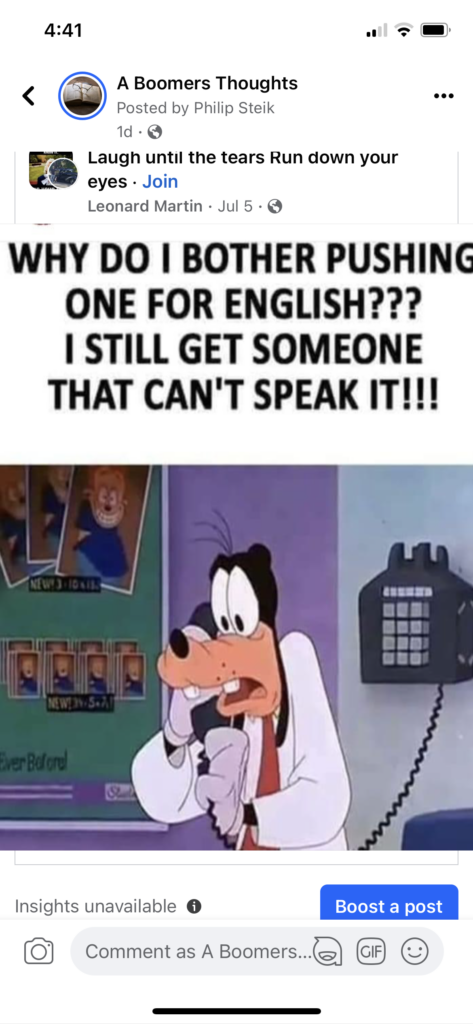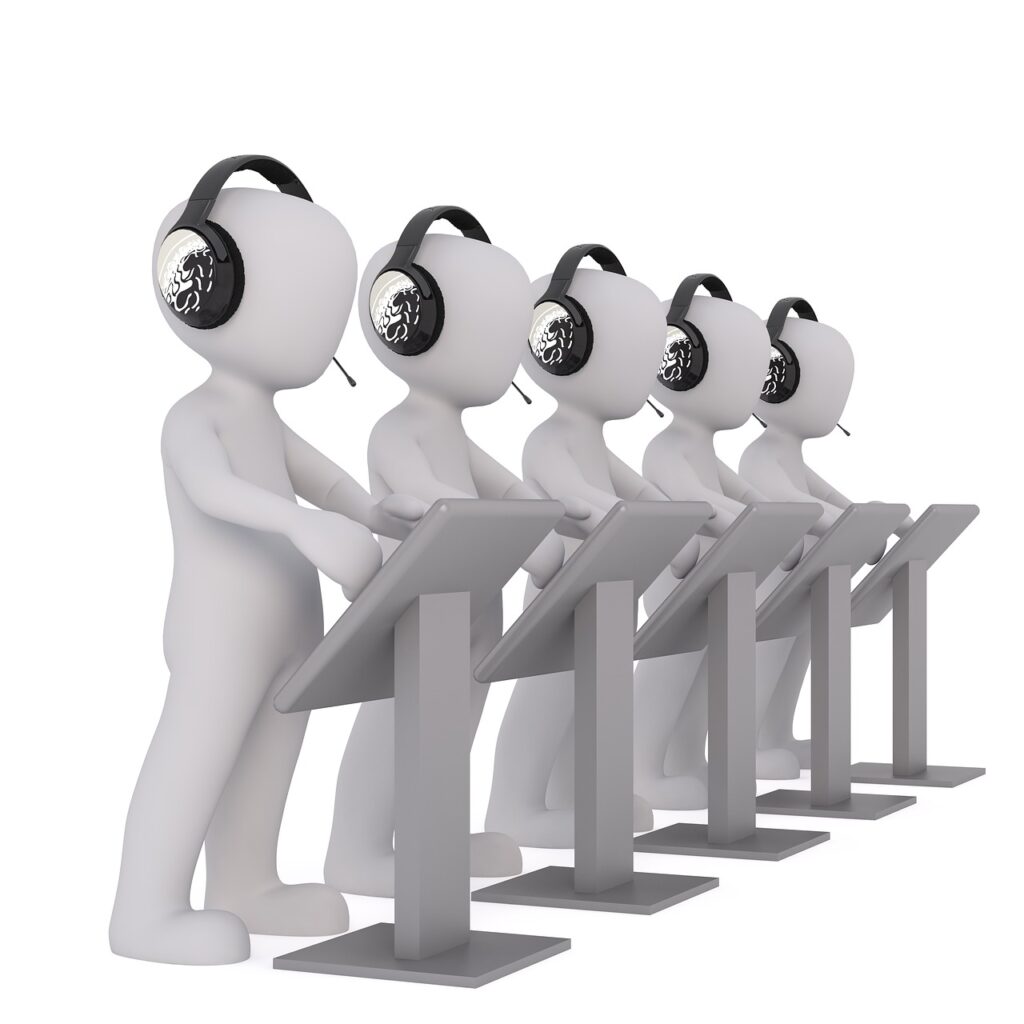I shared a post on my Facebook account recently that simply said, “WHY DO I BOTHER PUSHING ONE FOR ENGLISH ??? I STILL GET SOMEONE THAT CAN’T SPEAK IT!!!

I posted it as a lighthearted way to express my frustration with the business practices of many large companies I (And, apparently, many others) work with. I had no animus towards any group or culture when I made the post. I don’t believe there is any one culture involved, however, I might be wrong. My point was that it is frustrating to deal with someone over a phone line that you can’t understand. It is more frustrating when their job is to solve problems and having a dialogue with them is impossible, or at least very difficult.
In the first couple of days after my post, I received many (62) comments, likes and other affirmative responses. I was happy with that. Sixty-two is on the high side of post reactions in such a short period of time for my site. I did receive a negative one-word comment however, that left me scratching my head. The word was P-R-E-D-U-D-I-C-E.
My 1997 version of Webster’s Random House College Dictionary defines PREJUDICE as: An unfavorable opinion or feeling formed beforehand or without knowledge, thought or reason.
In my opinion, prejudice is alleged more now than it ever has been, and the allegations are often without cause. My post had nothing to do with race, color or creed! It had to do with the difficulties most of us have experienced when we have tried to call customer help lines.
Here is an example of one my reasons for not wanting to deal with a person who does not speak English after I pushed a button indicating that I do speak English.
Generally, for me, if I call a business, it is because I have a problem with, or a question about, their product. The resulting conversation is then, likely to be extensive and detailed. My mood coming into such a conversation is usually apprehensive and/or frustrated because the product I’m trying to use, or put together, is not working or as “easy to assemble” as advertised.
The first time I was subjected to a person who was not experienced with, or fluent in, English on such a call I became more frustrated and upset. In that instance, my call was transferred to a person who had me repeat almost everything I said, but he asked me to please “rapit,” and it took me a long minute to translate his English into my English and determine what he was saying!”
He could not understand me, and I could not understand him. That call could not be classified as successful in any sense.
Hiring a person, any person, to do a job they are not equipped to do is counterproductive beyond words. Several months after that bad experience, I needed to replace the computer I had made my nightmare call about. The number one item on my “list of needs” was that the new computer was a different make than the old one.
I have successfully dealt with many people who have thick accents in professional situations. I have had pleasant conversations with many workers who were obviously not born in the United States. My first reaction to dealing with a service representative who speaks with a strong accent is never negative. If, after attempting to have a meaningful dialogue we are both frustrated, my reaction becomes negative.
Does that make me prejudiced, or realistic?

Are you prejudiced against blind people if you insist the pilot of your plane is sighted? Are you prejudiced against paraplegics if you insist the driver of you bus has arms to steer with? Are you prejudiced against short people if you pick the 6-foot 6 player instead of the applicant who is 5 feet tall to be the center on a basketball team you are forming? How could anyone be thought of as prejudiced for craving a customer service representative who speaks their language, particularly when the product was purchased in an English-speaking country, and you have pushed the button to speak English?
Are any of the preferences I’ve mentioned above unreasonable?
Are you showing prejudice if you single out whites, or males, or even old white males? I was just curious because I heard clips on the radio recently of people in Washington DC protesting by chanting, “male, pale and stale” against those currently in office in Washington. In the clips I heard the radio commentator was not saying, “This is an outrageous attack on our male white elder statesmen!” He was explaining that the protesters were trying to open the doors for young minorities.
I thought those were classes that are protected by our laws (Sex, Race and Age). If those protesters were chanting that they were against, “female, dark and fresh” would that also have been acceptable? I suspect it would not have been.
Why is it that whites can be attacked verbally because they are white, but blacks can not?
Here’s a little news flash- If one race is not protected, there is no longer any legitimate protection against racial discrimination! If it is deemed “acceptable” to attack one gender- then gender is no longer protected! If we start to accept attacks on people because they are old, the protections against age discrimination will have ceased to exist!
Thank you for reading. If you have any questions, comments or concerns please let me know in the comment section.
Phil

When you have trouble understanding/communicatine with a representative of a company ask to speak to someone in the United States. They have to accomate you.